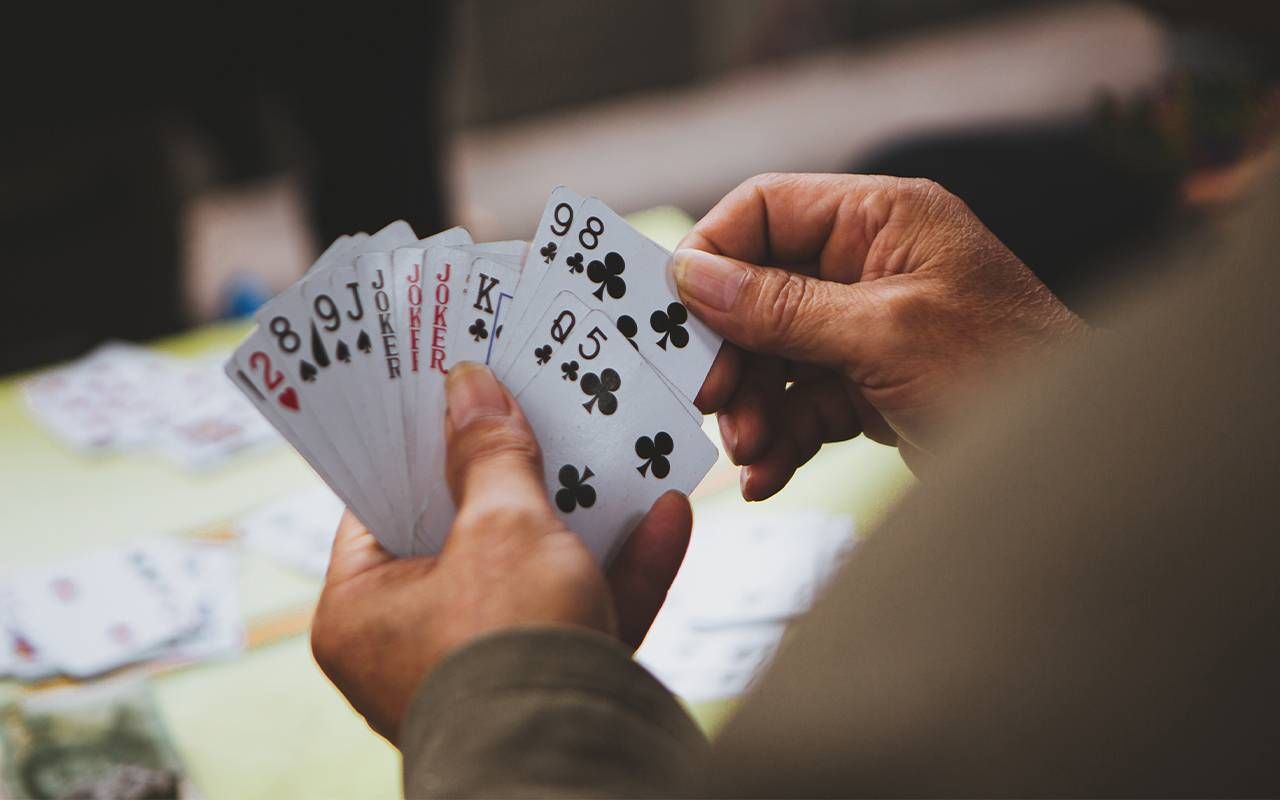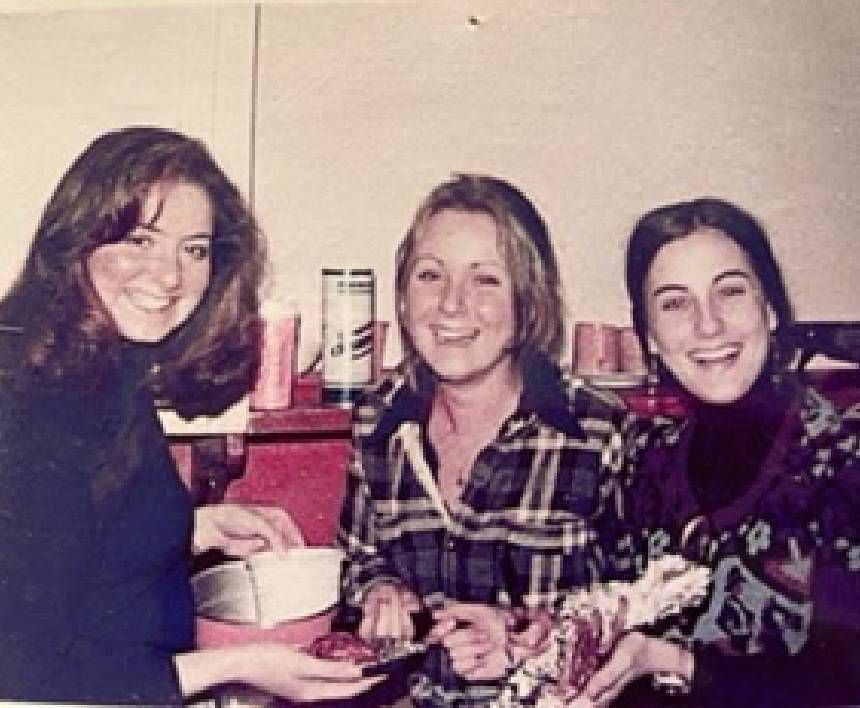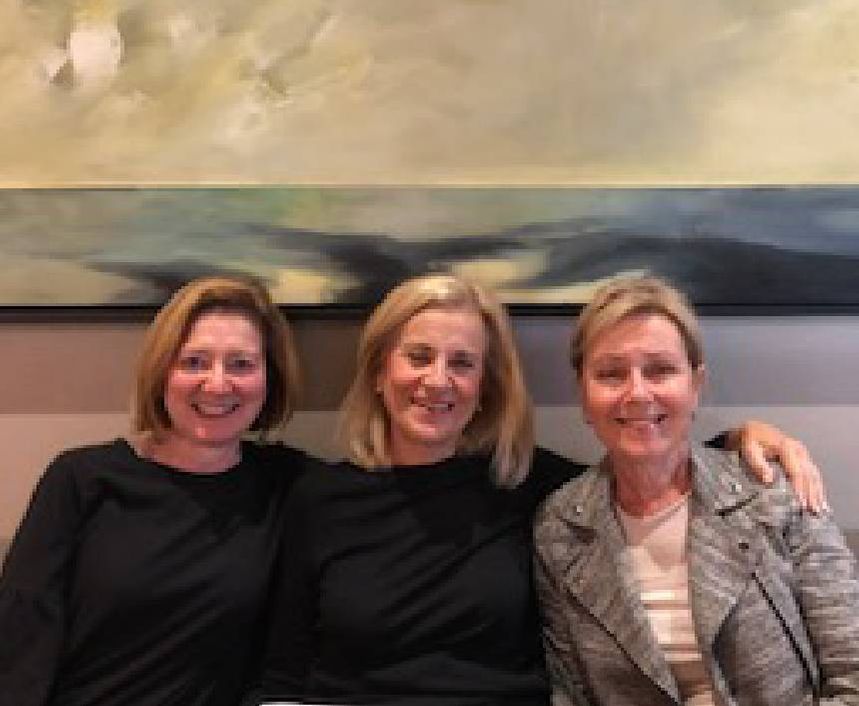The Canasta Phase of Friendship
Learning the game with lifelong friends became a source of solace and distraction during a difficult time
"Use your wild card," Rosey said, impatiently. "You have another meld in your hand."
Her voice was coming from a shelf on the bookcase slightly above my head, where I had propped my cellphone. I looked up from the canasta game on my tablet to Rosey's face on my cellphone screen.
"Can I use the wild card with my aces?"

"Exactly! You're getting the hang of it, Al," Rosey had switched to her encouraging voice. "You just need to read through the rules a few more times. Pretty soon, it will start to be fun."
It certainly wasn't fun yet, I thought darkly.
It was the winter of 2021, still in the frightening first phase of the pandemic. Rosey was trying to teach me the game of canasta via WhatsApp, watching me play against my computer. She was also tutoring Bonnie, the third member of our lifelong friendship trio, on alternate days. A good chunk of the population started playing games online during the pandemic. But for Bonnie and me, it was also the best way to help Rosey deal with her very difficult personal situation.
When they were little, I taught my kids to call my friends Auntie Rosey and Auntie Bonnie because they were like family.
Rosey, Bonnie and I have been friends since we were nine years old. We met at after-school Hebrew classes in the small town of Windsor, Canada, across the border from Detroit. As kids, we were inseparable, sleeping over at one another's houses, swapping clothes and listening to Beatles albums. When we reached high school, we hung out together on weekends and covered for one another with our parents when we dated boys who they didn't like.
We went to college in Toronto together, where we became feminists, partying and studying equally hard. Bonnie and I became lawyers while Rosey became a doctor. I married a classmate of Bonnie's, who I met through a fix-up, arranged by Bonnie. Bonnie married her camp sweetheart. Rosey held out on marriage until her mid-thirties when she fell for Emory, a handsome cardiologist at the hospital where she worked. They married and she became a step-mom to Emory's kids.
A Cancer Diagnosis
Although our lives have taken different directions at times, we have remained the closest of friends. When they were little, I taught my kids to call my friends Auntie Rosey and Auntie Bonnie because they were like family.
During the first year of pandemic lockdown, the three of us only saw one another onscreen. Initially, we FaceTimed daily to provide one another with reassurance that we were safe from the deadly virus. As time wore on and the emergency seemed less acute, we abandoned our daily check-ins. We would text, trade pictures of our grandkids, share YouTube videos and sometimes meet on WhatsApp.

When the health experts advised that transmission of the virus was unlikely outdoors, my partner and I would meet friends in parks. Sensing that Rosey seemed a little down, I suggested we meet for a walk. Rosey was reluctant but eventually agreed to meet me outside her condominium. About ten minutes into our walk, she stopped and turned to me. The peak of her baseball cap cast a shadow over the part of her face which wasn't covered by her N95 mask.
"Emory is sick, Al." Her voice faltered for a moment before she continued. "He has lung cancer."
My instinct was to wrap my arms around my friend, but it was clear that a hug would not be welcome. We were encased in big down coats and muffled behind masks, insulated from the wintry February weather as well as any human contact. Rosey's news was so entirely unexpected that I hardly knew where to start asking questions. But among the first was, "When did this happen?"
Rosey told me that Emory had received the cancer diagnosis almost a year earlier. At that time, they had decided to keep Emory's illness to themselves.
Rosey told me that Emory had received the cancer diagnosis almost a year earlier. At that time, they had decided to keep Emory's illness to themselves. The pandemic had given them a perfect cover. And since Emory was undergoing chemotherapy and was immunocompromised, their preference for privacy was also medically indicated.
Despite their solitude, Rosey said that they were both coping fairly well with Emory's illness. She was in close contact with her sister and with Emory's family. But I still found it unbearably sad to think that she had kept this terrible secret from her best friends for so long.
Learning the Game Together
Bonnie learned of Emory's illness around the same time as I did. We agreed that we had to find some way to support our friend of sixty years. Meal delivery and flowers weren't enough. We knew how much Rosey needed us, even if she didn't.

Rosey was totally preoccupied by Emory's illness. An avid reader and movie fan, she was not able to maintain enough focus to get through a book or spend two hours watching a movie. She told us that the only way she was able to get a mental break was when she was playing online canasta.
Bonnie and I decided that if canasta was the one activity that relieved Rosey's stress, we should play canasta with her. But since neither of us knew how to play, we committed to learning the game. And so began the canasta phase of our friendship. At first, Bonnie and I studied the rule books. After that, we started playing games against the computer with Rosey as our coach. Eventually, Rosey told us that we were ready to play an actual game.
Canasta was not an obvious response to Rosey's crisis, but it was the right one. It gave Rosey a break from her worries when Emory was ill. And since he died in December 2021, it has provided her with an easy way to be with her old friends, even when she didn't feel like talking. Sometimes when we are playing, I remember how Emory would make a brief appearance on my screen, just to say hello.
Knowing how sad this makes me, I am glad that Bonnie and I found a way to ease Rosey's loneliness. We play on Thursday nights with Rosey's cousin or Bonnie's sister-in-law as our fourth player. Although the pandemic has subsided and I have a real social life again, our weekly canasta game is still a high point in my week.
As Rosey said, canasta is fun.


